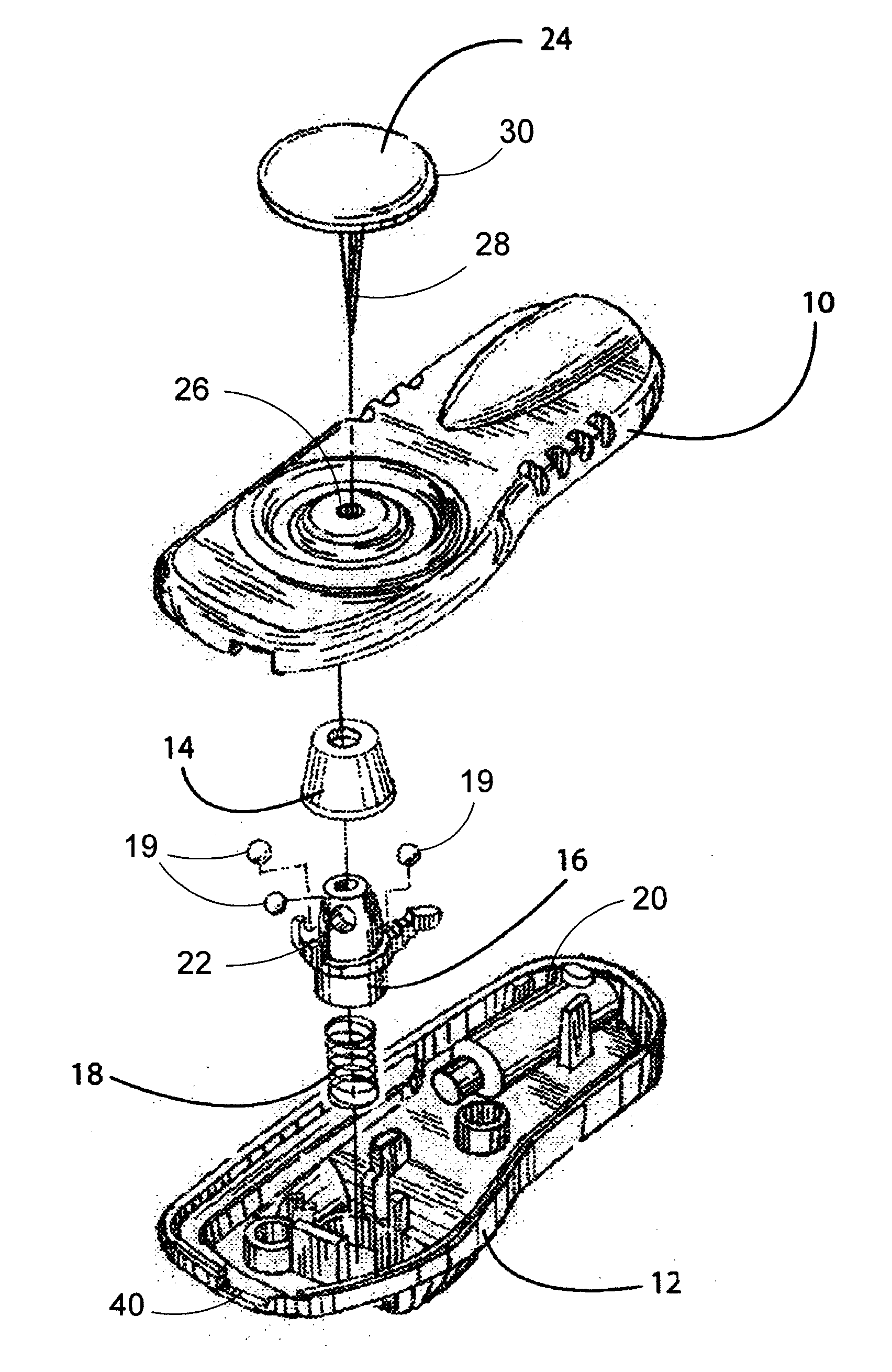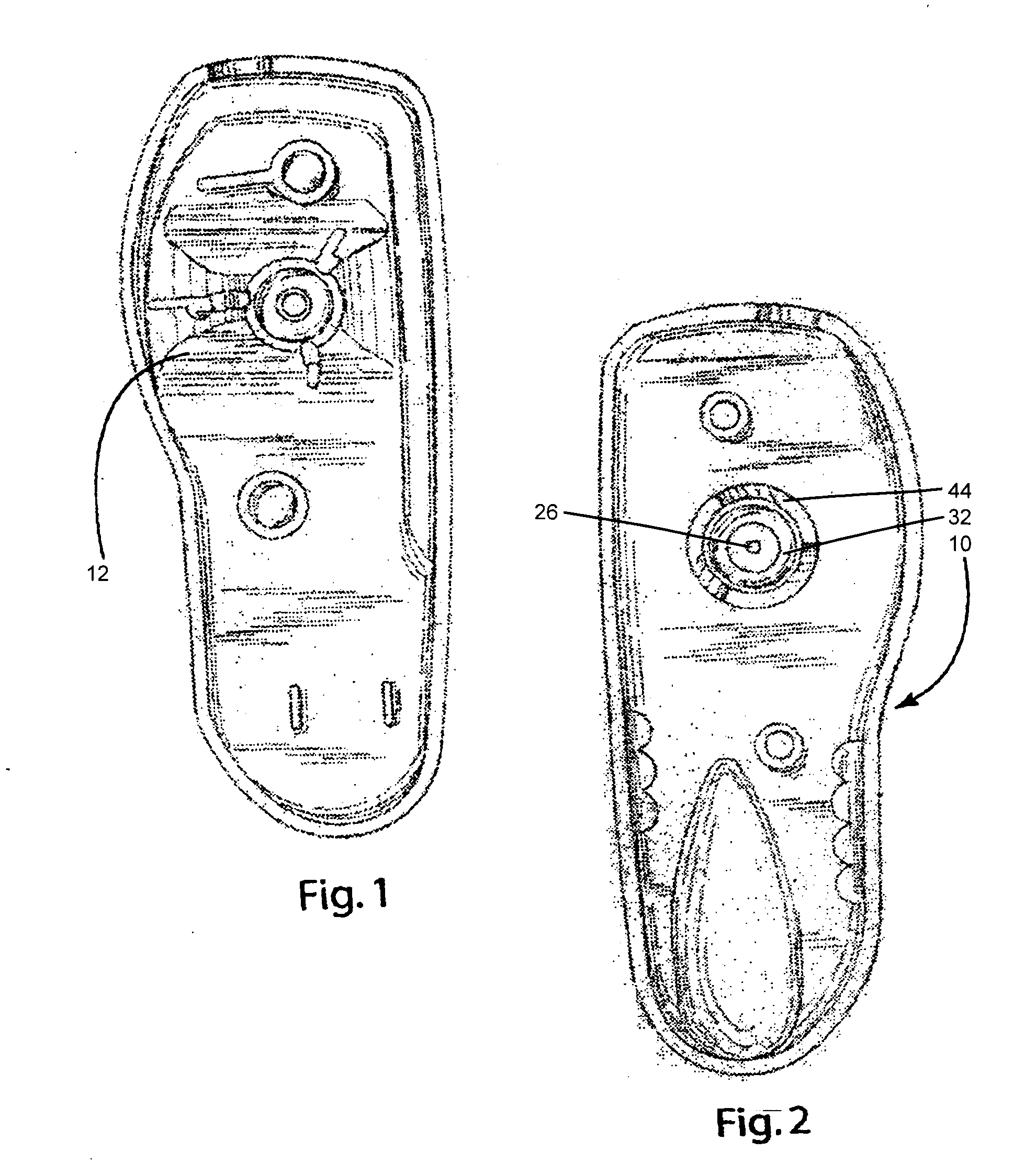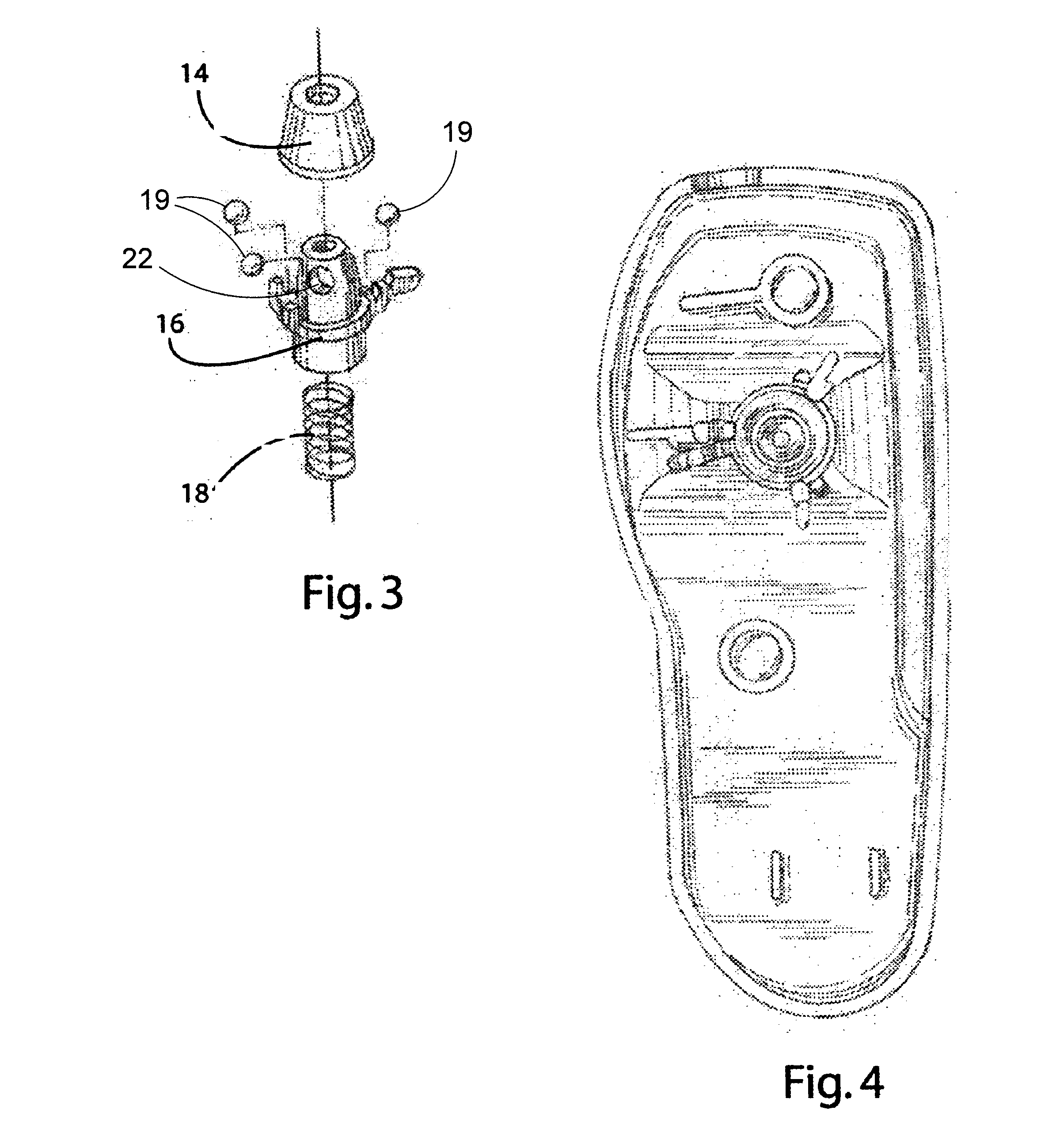Eas tag detachable by multiple methods
a technology of electronic articles and tags, applied in the direction of burglar alarm mechanical actuation, lock applications, instruments, etc., can solve the problems of deterioration of the quality of the tag's performance, affecting the checkout area in the retail establishment, and affecting the service life of the tag, so as to reduce the mass production cost, less cumbersome for the retailer to use, and the effect of reducing the cost of production
- Summary
- Abstract
- Description
- Claims
- Application Information
AI Technical Summary
Benefits of technology
Problems solved by technology
Method used
Image
Examples
Embodiment Construction
[0036] The preferred embodiment of the present invention, herein described, is a generally plastic article although other materials may also be used. The EAS tag is approximately three inches in overall length, and the tag housing consists of two molded plastic halves, a top and bottom housing structure shown as 10 in FIGS. 2 and 12 in FIG. 1, respectively. Upon assembly of top half 10 and bottom half 12, a shell is formed that houses both the fastening and release mechanisms and an electronic sensing mechanism 20 (shown in FIG. 5). Upon assembly of the tag to include the essential fastening and sensing elements, the tag is placed adjacent to the protected article and an anchoring tack 24 is inserted through both. An opening 26 in the security tag receives the anchoring tack and locks it in place such that the tack 24, and hence the security tag, cannot be removed unless a special tool is utilized to engage the release mechanism inside the security tag.
[0037] The electronic sensing...
PUM
 Login to View More
Login to View More Abstract
Description
Claims
Application Information
 Login to View More
Login to View More - R&D
- Intellectual Property
- Life Sciences
- Materials
- Tech Scout
- Unparalleled Data Quality
- Higher Quality Content
- 60% Fewer Hallucinations
Browse by: Latest US Patents, China's latest patents, Technical Efficacy Thesaurus, Application Domain, Technology Topic, Popular Technical Reports.
© 2025 PatSnap. All rights reserved.Legal|Privacy policy|Modern Slavery Act Transparency Statement|Sitemap|About US| Contact US: help@patsnap.com



